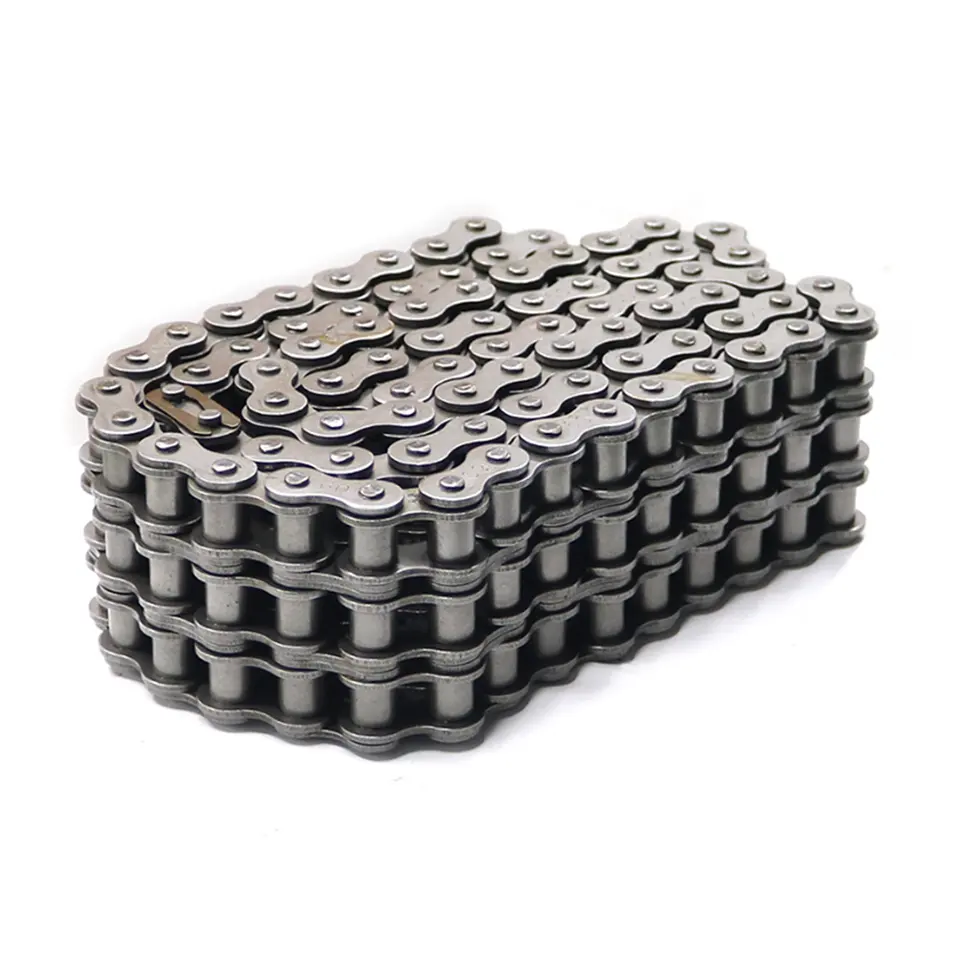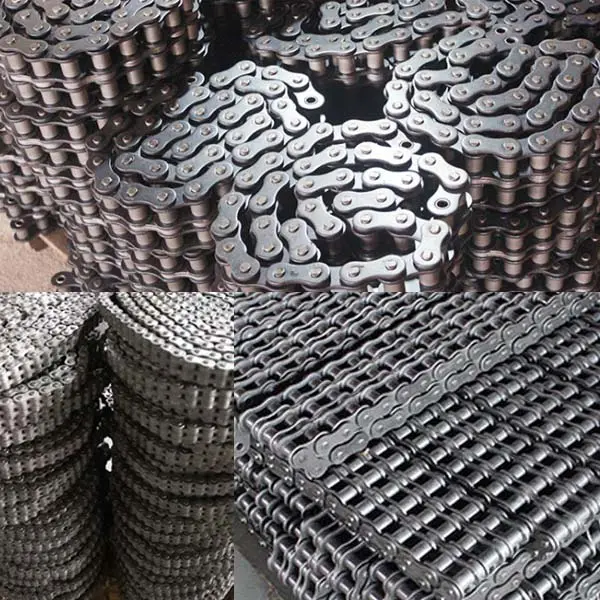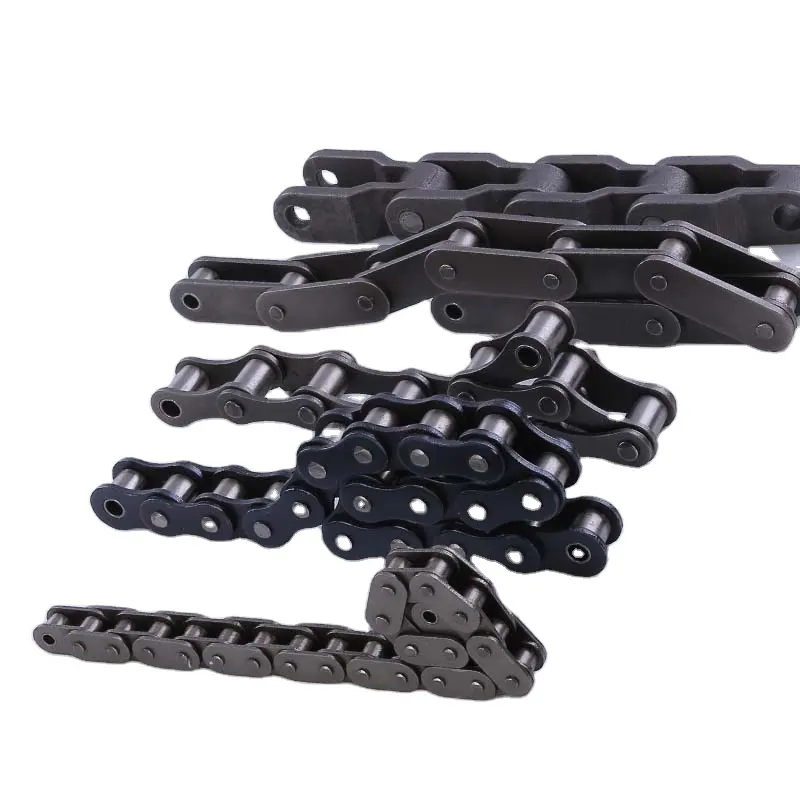Product Description
Product Description
Chain scrap standard:
1.The allowable wear value of the chain shall not exceed 10% of the diameter of the chain bar or the thickness of the auxiliary tool.
2.From the plane where the main ring does not bend, the main ring warps by more than 10 degrees should be scrapped.
3.It is prohibited to use if any part of the chain is cracked, bent or twisted and there is a phenomenon such as stuck or stiff between the ring hinges and cannot be ruled out.
4.The permanent elongation of the chain and single ring shall not exceed 5% of the original length.
Grade 80 lifting chain is an essential lifting device when lifting heavy objects. It adopts high-quality alloy steel (manganese steel, etc.) materials, and strictly controls the quality throughout the whole process, so that the lifting chain can reach the grade 80 international standard.
Advantages
1.Quick response to all your inquiry
2.Specialized in forging rigging products for 23 years
3.Focus on quality and provide you comparable price
4.Prompt Delivery
5.Drawings or samples processing, OEM service provided
6.Strict inspection procedures to guarantee the good quality of each shipment
7.Products test reports provided on request is available
8.Rich experience for international business
Application
Company Profile
Enterprise spirit: unity, integrity, responsibility, innovation.
Quality policy: process control, the pursuit of quality excellence;Service integrity, beyond customer satisfaction.
Team concept: jointly seek enterprise development, collective achievement of individual.
Management concept: adhere to the “people-oriented”, to achieve effective management by objectives.
Business philosophy: customer first, unity of knowledge and action, unity and hard work, sustainable win-win.
Execution concept: Be cautious and conscientious.
Development concept: first-class enterprises, first-class products, first-class reputation, first-class professional services.
Customer visit
Certifications
FAQ
1.Are you a factory or a trading company?
We are a factory focused on producing and exporting rigging hardware, wire rope, chain and lifting equipment over 23 years.
2.How do you control your quality?
All of our products are made of high quality steel, 100% finished product testing and third party product testing.We are an ISO certified factory, we will check the products again before loading.
3.What are your advantages compared with others?
1).BV, SGS Field Certification and Assessed Factory
2).Focused on rigging since 1998, have rich experience in Production.
3).Owned factory, the same quality product, the best price.
4).Timely Delivery with the support of 3000 square CZPT workshop.
5).Numerous Patents in Rigging Hardware. Be Good at Custom-Made and Shaped Products.
6).Over 20 Professional Staff in Trading Team,Let you enjoy worry-free and effective communication.
4. Can I be your agent?
Yes, welcome to deep cooperation. We have big promotion of FIRST brand in the market now. For the details please contact us.
5. Is OEM available?
A: Yes, OEM is available. We have professional designers to help you design.
6. How long is your delivery time?
According to the quantity and products you order, normally 5~30works days, Generally it is 15-20 works days if the goods are in stock.
7. What is your terms of payment ?
A: Payment≤1000USD, 100% T/T in advance. Payment>1000USD, 40% T/T in advance ,balance before shipment. Irrepealably L/C at sight.
8. Do you offer free samples?
A: We can provide you with free samples if the value is not too high, but you need to pay the freight charge.
9. Can we have a visit to your factory?
A: Welcome to our factory, and we will arrange the pick-up.
|
Shipping Cost:
Estimated freight per unit. |
To be negotiated|
|
|---|
| Usage: | Drag Chain, Lifting Chain |
|---|---|
| Material: | Alloy |
| Surface Treatment: | Polishing |
| Samples: |
US$ 1/Meter
1 Meter(Min.Order) | Order Sample |
|---|
| Customization: |
Available
| Customized Request |
|---|

How do you troubleshoot chain skipping or slipping issues in an industrial chain?
Chain skipping or slipping issues in an industrial chain can lead to decreased efficiency and potential equipment damage. Here are some steps to troubleshoot and address these issues:
- Check chain tension: Ensure that the chain is properly tensioned according to the manufacturer’s recommendations. An overly loose or tight chain can cause skipping or slipping.
- Inspect sprockets: Examine the sprockets for signs of wear, damage, or misalignment. Worn or damaged sprocket teeth can cause chain skipping. Correct any alignment issues and replace worn sprockets if necessary.
- Inspect chain condition: Inspect the chain for signs of wear, elongation, or damage. A worn or stretched chain may not properly engage with the sprockets, leading to skipping or slipping. If the chain is significantly worn, it may need to be replaced.
- Clean and lubricate the chain: Clean the chain thoroughly to remove any debris or contaminants that may be affecting its performance. Apply a suitable lubricant to ensure smooth operation and reduce friction.
- Check drive system components: Examine other components of the drive system, such as bearings, shafts, and gears, for any signs of damage or misalignment. These components can also contribute to chain skipping or slipping.
- Adjust alignment: Ensure that the entire chain drive system is properly aligned. Misalignment can cause uneven tension distribution and lead to chain skipping. Adjust the alignment as needed.
- Inspect drive system tensioners: If the chain drive system includes tensioners, check their condition and adjustment. A malfunctioning or improperly adjusted tensioner can contribute to chain skipping.
- Consult manufacturer guidelines: Refer to the manufacturer’s guidelines and specifications for the specific industrial chain and equipment being used. Follow their recommended troubleshooting steps and maintenance practices.
- Seek professional assistance if needed: If the issue persists or if you are unsure about the troubleshooting process, it is recommended to seek assistance from a qualified technician or the manufacturer’s technical support team.
Addressing chain skipping or slipping issues promptly is important to prevent further damage and maintain the efficiency and reliability of the industrial chain system.
What are the noise levels associated with industrial chains?
The noise levels associated with industrial chains can vary depending on several factors, including chain design, lubrication, and operating conditions.
Chain Design: The design of the industrial chain, including the type of chain and its construction, can impact noise levels. Chains with smoother surfaces and precision manufacturing techniques tend to produce less noise.
Lubrication: Proper lubrication of the chain is essential for reducing noise. Applying a suitable lubricant to the chain can minimize friction and vibration, resulting in quieter operation.
Operating Conditions: The operating conditions of the industrial chain, such as the load, speed, and tension, can also affect noise levels. Higher loads and speeds, as well as inadequate tensioning, can increase noise levels.
Overall, it is important to consider noise levels when using industrial chains, particularly in noise-sensitive environments. Implementing proper chain design, regular lubrication, and maintaining appropriate operating conditions can help minimize noise and create a more comfortable work environment.

How is an industrial chain different from a regular chain?
An industrial chain differs from a regular chain in terms of its design, construction, and intended application. Here are some key differences:
- Strength and Durability: Industrial chains are specifically designed to handle heavy loads and withstand harsh operating conditions in industrial settings. They are constructed using high-quality materials and undergo rigorous testing to ensure strength and durability.
- Precision Engineering: Industrial chains are engineered with precision to meet specific performance requirements. They are manufactured to strict tolerances, ensuring precise fit and proper engagement with sprockets, resulting in reliable and efficient power transmission.
- Specialized Designs: Industrial chains come in a variety of specialized designs to accommodate different applications. They may feature specific link shapes, roller configurations, or surface treatments tailored to meet the unique needs of various industries, such as conveying, lifting, or power transmission.
- Lubrication Requirements: Industrial chains often require regular lubrication to minimize friction and wear. They may incorporate lubrication systems or be designed to accommodate external lubrication methods to ensure optimal performance and longevity.
- Application Focus: Regular chains are commonly used for lighter-duty applications such as securing objects or supporting light loads. Industrial chains, on the other hand, are designed for heavy-duty industrial applications, including machinery, conveyors, mining equipment, and other demanding environments where high load capacity and reliability are crucial.
- Industry Standards and Regulations: Industrial chains are often subject to specific industry standards and regulations to ensure their performance, safety, and compatibility with machinery and equipment used in industrial settings.
Overall, the key distinction lies in the industrial chain’s robustness, precision engineering, specialized designs, and suitability for heavy-duty industrial applications, setting it apart from regular chains commonly used in lighter-duty tasks.


editor by CX 2023-08-08